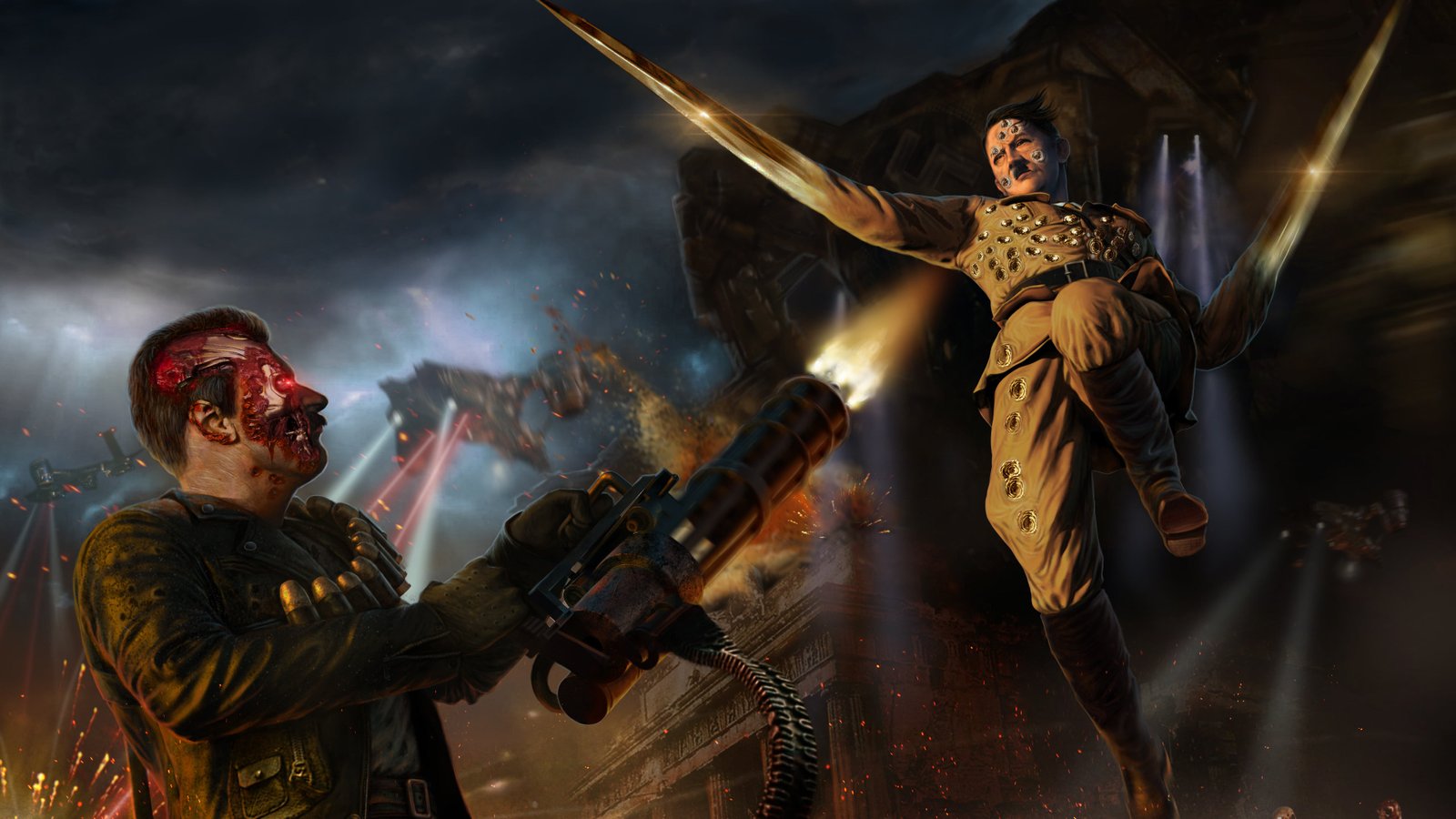Sneak Peak
Delve into the dark legacies of history’s most infamous tyrants, Hitler and Stalin, as we compare and contrast their rise to power, brutal tactics, and impact on the world. From the propaganda machines to the terror campaigns, uncover the chilling details of their reigns and explore why Hitler is often regarded as worse than Stalin. Join us on a journey through history to understand the depths of human cruelty and the importance of learning from the past to shape a better future.
Table of Contents
Introduction
“Hitler or Stalin” Did you know that Adolf Hitler and Joseph Stalin, two of history’s most infamous leaders, were responsible for the deaths of an estimated 40 to 50 million people combined?
In this article, we will delve into the dark legacies of Hitler and Stalin, comparing and contrasting their rise to power, brutal tactics, and impact on history. By examining their ideologies, atrocities, and the contexts in which they operated, we will seek to answer the question of who was worse between these two tyrants.
Key Takeaways:
- Adolf Hitler and Joseph Stalin were responsible for the deaths of an estimated 40 to 50 million people combined.
- This article will compare and contrast the rise to power, brutal tactics, and impact on history of Hitler and Stalin.
- By examining their ideologies, atrocities, and historical contexts, we aim to determine who was worse between these two tyrants.
The Rise to Power: Hitler vs. Stalin
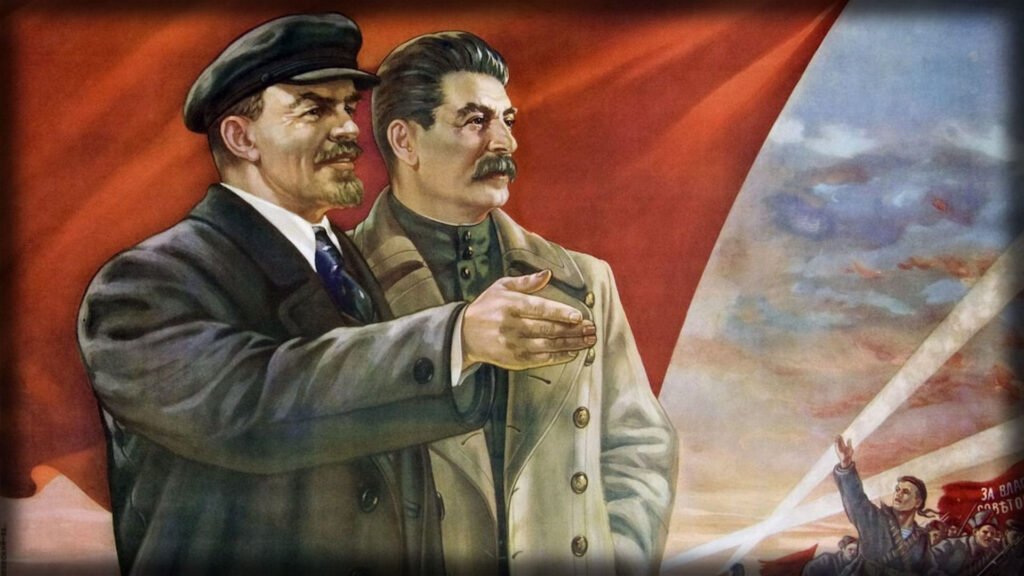
In order to understand the atrocities committed by Hitler and Stalin, it is crucial to explore their respective rise to power. Both leaders took advantage of unique political contexts in their countries to amass control, using a combination of strategies to solidify their positions.
Hitler’s Rise to Power
Adolf Hitler, the leader of the National Socialist German Workers’ Party, capitalized on the economic and social turmoil in Germany following World War I. The Treaty of Versailles had left the country in a state of unrest, and Hitler skillfully manipulated the national sentiment to his advantage. Hitler or Stalin
Through charismatic oratory skills and a powerful propaganda machine, Hitler gained widespread support among disenchanted Germans. He utilized scapegoating tactics, blaming minority groups like Jews and Communists for the nation’s woes, and presented himself as the strongman who could restore Germany’s former glory. Hitler or Stalin
Hitler’s aggressive expansionist policies and his ability to unite Germans under a common goal propelled him to power. With the Enabling Act of 1933, he effectively eliminated political opposition and consolidated his authority as the dictator of Germany. Hitler or Stalin
Stalin’s Rise to Power
In contrast, Joseph Stalin’s path to power was rooted in the political intricacies of the Soviet Union. After Lenin’s death in 1924, a power struggle ensued within the Bolshevik Party. Leveraging his position as General Secretary of the party, Stalin skillfully outmaneuvered his rivals, such as Leon Trotsky. Hitler or Stalin
Stalin emphasized the concept of “Socialism in One Country,” promoting the idea that the Soviet Union should focus on building socialism within its borders. This appealed to the practical aspirations of the Soviet people and allowed Stalin to consolidate his power with the help of the party apparatus. Hitler or Stalin
Through a combination of political maneuvering, purges, and control over key institutions, Stalin succeeded in eradicating his opponents and becoming the undisputed leader of the Soviet Union by the late 1920s.
The Comparison:
| Aspect | Hitler | Stalin |
|---|---|---|
| Country | Germany | Soviet Union |
| Party | National Socialist German Workers’ Party | Bolshevik Party |
| Leadership Style | Charismatic and authoritarian | Authoritarian and dictatorial |
| Rise to Power | Exploited post-WWI German discontent and scapegoated minority groups | Won power struggles within the party and implemented “Socialism in One Country” |
| Consolidation of Power | Enabling Act of 1933 and elimination of political opposition | Purges, control over key institutions, and elimination of rivals |
While Hitler and Stalin took different paths to power, their rise to totalitarian control had devastating consequences for the world. Understanding the tactics and strategies employed by both leaders provides insight into the events that unfolded during their reigns and underscores the importance of learning from history to prevent such atrocities in the future. Hitler or Stalin
Brutal Tactics: Comparing Hitler and Stalin
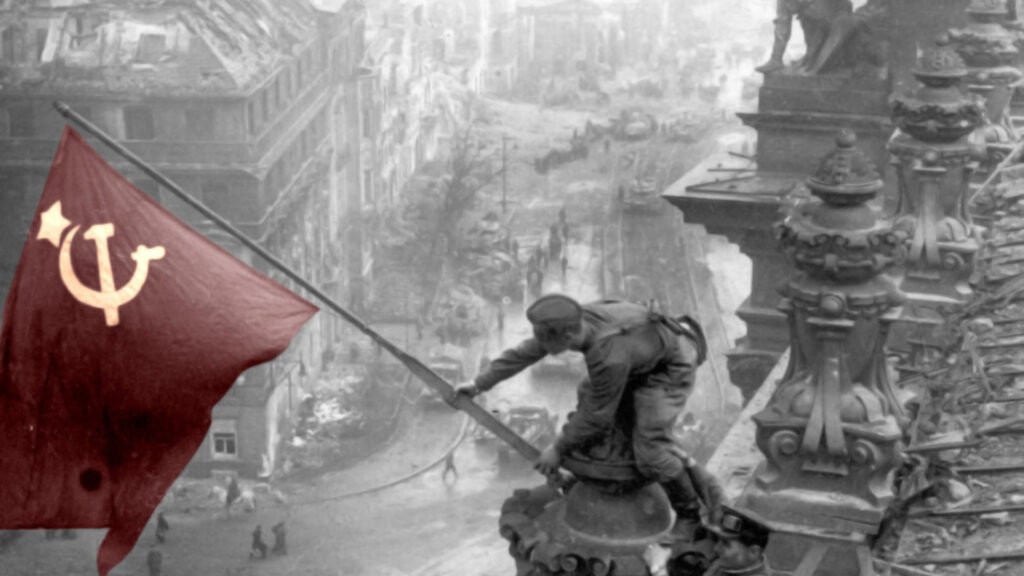
Hitler and Stalin, two of the most infamous dictators in history, employed brutal tactics to maintain control and enforce their ideologies. Let’s delve into the disturbing facts about their methods of governance.
Propaganda:
Both Hitler and Stalin relied heavily on propaganda to shape public opinion. Hitler’s Ministry of Public Enlightenment and Propaganda used media outlets to spread Nazi ideologies of racial superiority and anti-Semitism. Similarly, Stalin’s regime controlled the media and disseminated propaganda promoting communism and glorifying his leadership.
Secret Police:
Hitler’s Gestapo and Stalin’s NKVD were instrumental in suppressing dissent and eliminating opposition. These secret police forces operated outside the law, engaging in surveillance, arrests, and brutal interrogations to instill fear and ensure compliance with the regime’s agenda.
Terror Campaigns:
Both Hitler and Stalin employed terror campaigns to maintain control. Hitler’s regime systematically targeted and persecuted specific racial and ethnic groups, culminating in the Holocaust—an unprecedented genocide that led to the death of six million Jews. Stalin, on the other hand, launched the Great Purge, during which millions of perceived enemies of the state were executed or sent to gulags, resulting in untold suffering.
Purges:
Stalin’s purges aimed to eliminate any potential threats to his leadership within the Communist Party. Party members suspected of disloyalty were subjected to show trials, imprisonment, and execution. Hitler, too, purged those he perceived as threats to the Nazi regime, such as the Night of the Long Knives in 1934, in which Hitler ordered the execution of his political rivals.
Comparing Hitler and Stalin’s Brutal Tactics
| Brutal Tactics | Hitler | Stalin |
|---|---|---|
| Propaganda | Used media outlets to spread Nazi ideologies | Controlled media for promoting communism |
| Secret Police | Gestapo | NKVD |
| Terror Campaigns | Targeted and persecuted racial and ethnic groups, leading to the Holocaust | Launched the Great Purge, resulting in millions of deaths |
| Purges | Eliminated political rivals, like the Night of the Long Knives in 1934 | Purged perceived threats within the Communist Party |
Impact on History: Hitler’s Legacy
In examining the impact on history, one cannot overstate the profound influence that Adolf Hitler had during his reign and in the aftermath of his rule. Hitler’s accomplishments, though deeply tainted by his atrocities, have left an indelible mark on the world. Hitler or Stalin
Starting World War II: Hitler’s aggressive expansionist policies, driven by his quest for Lebensraum (living space) for the Aryan race, led to the outbreak of World War II. The invasion of Poland in 1939 marked the beginning of a conflict that would engulf the globe, resulting in unprecedented destruction and loss of life. Hitler or Stalin
The Holocaust: Hitler’s most infamous and heinous achievement was the implementation of the systematic genocide of six million Jews and millions of other minorities during the Holocaust. The horrors of the concentration camps and the morally reprehensible acts committed under Hitler’s orders continue to haunt humanity’s collective conscience. Hitler or Stalin
Aggressive Expansionist Policies: Hitler’s desire to establish a greater German empire through conquest and domination led to the invasion of multiple countries across Europe. His campaigns in Poland, France, and the Soviet Union left a trail of destruction, decimating cities and causing immeasurable suffering. Hitler or Stalin
Influence on Far-Right Movements: Hitler’s ideologies, rooted in racial supremacy and totalitarianism, continue to resonate with far-right movements around the world. His toxic legacy serves as a chilling reminder of the dangers posed by extremism and the importance of remaining vigilant against its resurgence. Hitler or Stalin
“The great masses of the people will more easily fall victims to a big lie than to a small one.” – Adolf Hitler
Hitler’s impact on history is an enduring reminder of the catastrophic consequences that can arise from the abuse of power, manipulation of ideologies, and the sinister depths to which humanity can descend when led by a tyrant.
Impact on History: Stalin’s Legacy
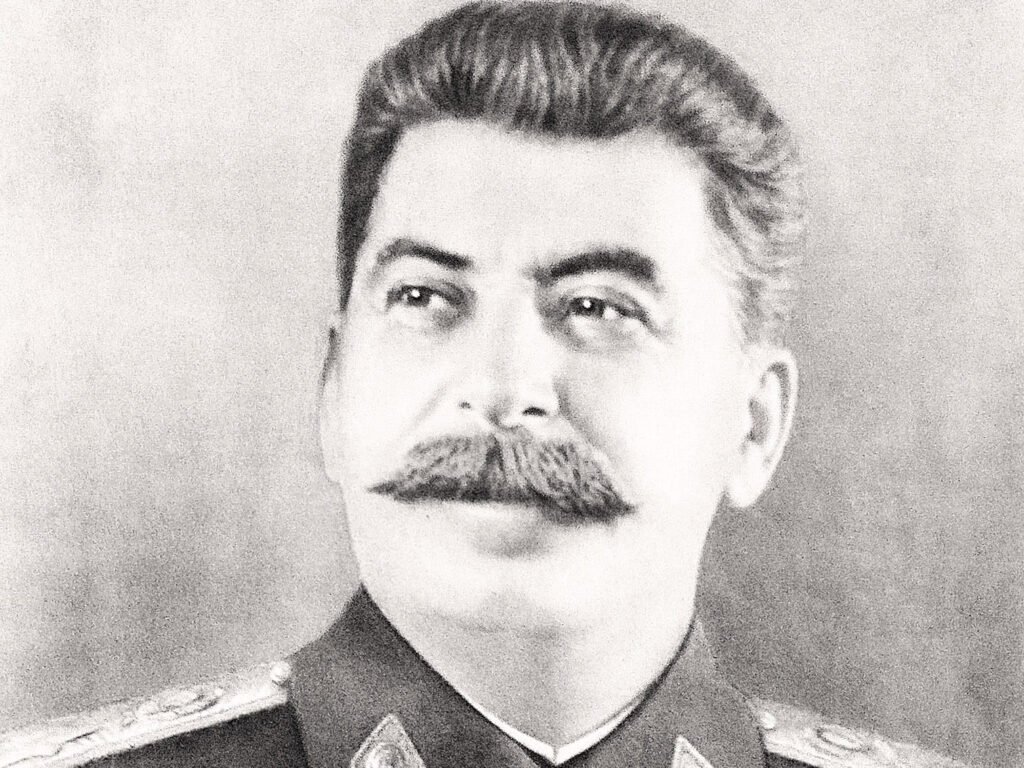
In examining the impact of Joseph Stalin on history, particularly within the Soviet Union, it becomes clear that his policies and actions shaped the nation’s trajectory in profound ways. From his aggressive programs of collectivization and industrialization to the brutal Great Purge, Stalin left an indelible mark on the Soviet Union and the world. Hitler or Stalin
Policies of Collectivization and Industrialization
One of Stalin’s most ambitious endeavors was the implementation of collectivization in agriculture and rapid industrialization. By forcibly consolidating private farms into massive collective farms, he sought to increase agricultural output and satisfy the growing demands of urbanization. This policy, however, resulted in widespread resistance and severe human suffering, as millions of peasants were displaced and agricultural productivity declined. Hitler or Stalin
In tandem with collectivization, Stalin pushed for accelerated industrial growth, aiming to transform the Soviet Union into a major industrial power. This drive led to the establishment of massive factories and industrial complexes, fueling rapid economic development. However, the harsh conditions and forced labor imposed on workers during this process resulted in countless human rights abuses and a staggering loss of life. Hitler or Stalin
The Great Purge and Repression
“Death is the solution to all problems. No man – no problem.” – Joseph Stalin
One of the darkest chapters of Stalin’s rule was the Great Purge, during which he systematically eliminated perceived threats to his power. From 1934 to 1938, millions of people were arrested, tortured, and executed, including political opponents, intellectuals, military officers, and even fellow comrades within the Communist Party. This campaign of terror left a lasting impact on Soviet society, instilling fear, paranoia, and a pervasive culture of silence. Hitler or Stalin
Role in World War II and Cold War Influence
Stalin’s role in leading the Soviet Union through World War II cannot be overlooked. Despite signing a non-aggression pact with Hitler in 1939, he was ultimately forced into a defensive war when Germany invaded the USSR in 1941. Stalin’s leadership during this conflict, marked by immense sacrifice and resilience on the part of the Soviet people, played a critical role in the eventual victory over Nazi Germany. Hitler or Stalin
Stalin’s legacy also extends to the Cold War era. As the leader of the Soviet Union, he perpetuated the spread of communism and fostered tension with the West. His leadership style, marked by authoritarianism and a cult of personality, set the stage for decades of geopolitical rivalry and ideological conflict. Hitler or Stalin
| Stalin’s Legacy | Key Impact |
|---|---|
| Collectivization and Industrialization | Transformed Soviet agriculture and industry, but at the cost of immense human suffering and loss of life |
| The Great Purge | Created a climate of fear and paranoia, resulting in the persecution and execution of millions |
| Role in World War II | Led the Soviet Union to victory over Nazi Germany through immense sacrifice and effective military strategy |
| Cold War Influence | Fostered tension between the Soviet Union and the West, perpetuating a decades-long ideological conflict |
In summary, Stalin’s legacy is one of immense social, political, and economic transformation, coupled with widespread repression and suffering. His policies and actions continue to shape historical narratives and provoke debates about the nature of tyranny, revolution, and the limits of state power. Hitler or Stalin
The Comparison: Hitler vs. Stalin
In comparing the legacies of Hitler and Stalin, it is essential to examine their leadership styles, ideologies, and the scale of their atrocities. While both dictators left a dark mark on history, their approaches and historical contexts differ significantly. Hitler or Stalin
Leadership Styles
Hitler’s leadership style was characterized by his charismatic persona, utilizing propaganda to manipulate and control the masses. He presented himself as a powerful and infallible leader, demanding unwavering loyalty and obedience.
In contrast, Stalin ruled with an iron fist, instilling fear through a regime of terror. He exerted absolute control over the Soviet Union, purging perceived threats and dissenters through mass executions and forced labor camps. His leadership was defined by fear and oppression. Hitler or Stalin
Ideologies
Hitler’s ideology centered around Aryan supremacy and the creation of a racially pure society. He propagated anti-Semitic beliefs, leading to the systematic extermination of six million Jews, along with the persecution of other minority groups. Hitler or Stalin
Stalin, on the other hand, promoted communism and the establishment of a socialist state. While his ideology emphasized egalitarianism, it resulted in the forced collectivization of agriculture, causing widespread famine and millions of deaths. Stalin’s purges also targeted perceived threats within the Communist Party, resulting in the execution or imprisonment of countless individuals. Hitler or Stalin
Scale of Atrocities
In terms of the scale of their atrocities, Hitler’s regime was responsible for the genocide of millions during the Holocaust, as well as the initiation of World War II, which resulted in the deaths of tens of millions. The sheer magnitude of human suffering caused by Hitler’s aggression, coupled with the systematic targeting of specific racial and ethnic groups, sets him apart as one of history’s most notorious dictators. Hitler or Stalin
While Stalin’s reign also led to millions of deaths through famines, purges, and executions, his atrocities were primarily directed at his own people within the Soviet Union. However, it is important to recognize that Stalin’s actions had significant global implications, particularly through his role in World War II and the subsequent Cold War.
| Hitler | Stalin | |
|---|---|---|
| Leadership Style | Charismatic and manipulative | Authoritarian and oppressive |
| Ideology | Aryan supremacy and anti-Semitism | Communism and socialist state |
| Scale of Atrocities | The Holocaust and millions of deaths in World War II | Famines, purges, and executions within the Soviet Union |
Comparing Hitler and Stalin is a complex task, as each had a profound and lasting impact on history. While Hitler’s atrocities during the Holocaust and World War II make him notorious on a global scale, Stalin’s brutal regime and oppressive policies cannot be overlooked. Understanding the differences in their leadership styles, ideologies, and the scale of their atrocities provides valuable insight into the immense human suffering inflicted by these tyrants. Hitler or Stalin
Why Hitler is Regarded as Worse than Stalin
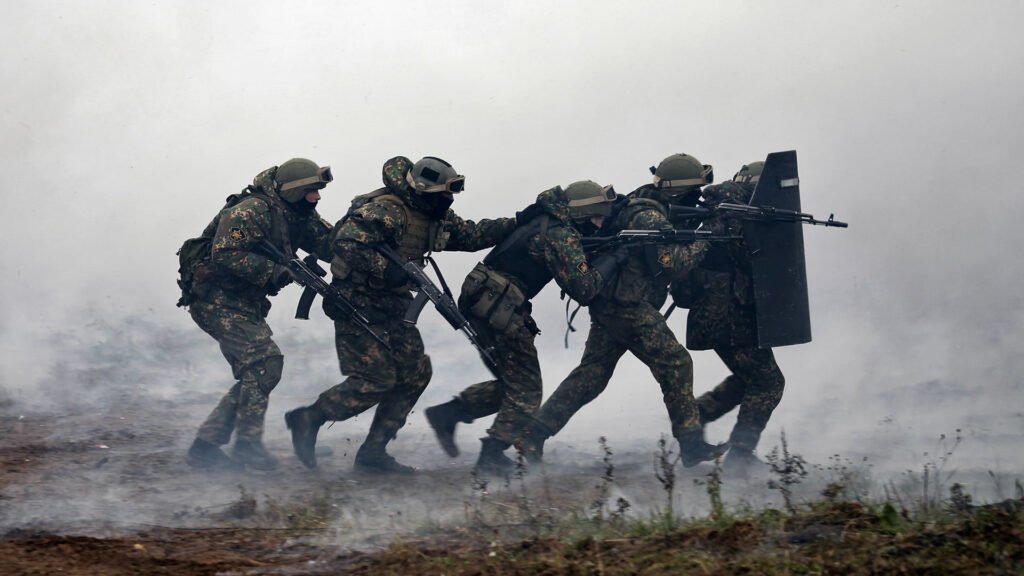
When comparing Hitler and Stalin, it becomes evident why Hitler is often regarded as worse. The magnitude of the Holocaust, under Hitler’s regime, is a dark stain on human history. Hitler’s fanatical pursuit of a global Aryan dominance led to the systematic targeting of specific racial and ethnic groups, resulting in the mass murder of millions. This unparalleled level of racial hatred and genocide sets Hitler apart as a particularly evil dictator. Hitler or Stalin
Furthermore, the sheer scale of Hitler’s aggression and the devastation caused by Nazi Germany cannot be underestimated. Hitler’s aggressive expansionist policies plunged the world into the deadliest conflict in history, World War II. The war resulted in the deaths of over 70 million people, including the six million Jews exterminated in the Holocaust. The destructive impact of Hitler’s actions on both a global and human level is unparalleled. Hitler or Stalin
“Hitler’s fanatical pursuit of a global Aryan dominance led to the systematic targeting of specific racial and ethnic groups.”
While both Hitler and Stalin were ruthless dictators, it is the combination of Hitler’s orchestrated genocide and the magnitude of his aggression that places him at the forefront of history’s worst tyrants. The devastating consequences of Hitler’s actions continue to reverberate to this day, serving as a stark reminder of the depths to which human cruelty can sink. Hitler or Stalin
Stalin’s Role in World War II
During World War II, Joseph Stalin played a significant role in orchestrating the Soviet Union’s defense against the German invasion. With his policies of aggression and territorial expansion, Stalin demonstrated his determination to protect the Soviet Union’s interests and establish its dominance in Eastern Europe. Hitler or Stalin
Stalin’s initially surprising alliance with Adolf Hitler through the Molotov-Ribbentrop Pact in 1939 allowed the Soviet Union to delay its involvement in the war. However, this agreement proved temporary, as Hitler eventually broke the pact by invading the Soviet Union in 1941. Hitler or Stalin
Confronted with the overwhelming force of the German military, Stalin rallied the Soviet people, implementing a strategy of total war and inspiring fierce resistance against the Nazis. Under his leadership, the Soviet Union adopted a scorched-earth policy, destroying infrastructure and resources to hinder the German advance and disrupt their supply lines. Hitler or Stalin
Stalin’s military tactics and strategic decisions were instrumental in turning the tide of the war. The Soviet Union’s successful defense of Stalingrad in 1942-1943 marked a significant turning point, leading to a series of major victories that pushed the Germans back and ultimately led to their defeat. Hitler or Stalin
“The only real power comes out of a long rifle.” – Joseph Stalin
Stalin’s leadership during World War II played a crucial role in halting Hitler’s plans for European domination. By the war’s end, the Soviet Union had suffered immense casualties, but it emerged as a global superpower and a key player in shaping post-war Europe.
Conclusion
In conclusion, the legacies of Hitler and Stalin are two dark chapters in history that continue to haunt us. Both leaders were ruthless dictators who caused immense suffering and death. Hitler’s pursuit of Aryan dominance led to the Holocaust, the systematic genocide of millions of Jews and other targeted groups. His aggressive expansionist policies triggered World War II, leaving a trail of destruction across Europe. The magnitude of Hitler’s atrocities and his fanatical ideologies make him widely regarded as one of history’s worst tyrants. Hitler or Stalin
Stalin, on the other hand, inflicted his own reign of terror in the Soviet Union. His policies of collectivization and industrialization caused widespread famine and the death of millions. The Great Purge resulted in the execution or imprisonment of countless individuals perceived as a threat to his power. While Stalin played a crucial role in defeating Hitler during World War II, his legacy is marred by his authoritarian rule and disregard for human life. Hitler or Stalin
When comparing Hitler and Stalin, it is difficult to determine who was worse. Both committed heinous crimes and left a devastating impact. However, the sheer scale and reach of Hitler’s aggression, as well as the systematic extermination of millions during the Holocaust, make him stand out as a particularly vile figure in history. It is essential to study Hitler and Stalin to understand the horrors that can arise from unchecked power, and to remember the victims of their atrocities. Hitler or Stalin
FAQ
Who was worse, Hitler or Stalin?
Comparing the atrocities committed by Hitler and Stalin is a challenging task. Both were notorious dictators with dark legacies, responsible for the deaths of millions. While Hitler’s fanatical pursuit of a global Aryan dominance and the magnitude of the Holocaust make him often regarded as worse, Stalin’s policies of collectivization, industrialization, and the Great Purge also caused immense suffering. Ultimately, it is a matter of perspective and the historical context in which they operated. Hitler or Stalin
How did Hitler and Stalin rise to power?
Hitler rose to power through a combination of political maneuvering, exploiting economic hardship, and leveraging Germany’s discontent with the Treaty of Versailles. He utilized propaganda, charismatic speeches, and the creation of the Nazi Party to gain support. In contrast, Stalin’s rise to power involved a power struggle within the Soviet Union’s ruling Communist Party. His leadership abilities and political maneuvering helped him outmaneuver his rivals and become the General Secretary. Hitler or Stalin
What brutal tactics did Hitler and Stalin employ?
Both Hitler and Stalin employed brutal tactics to maintain control. Hitler used propaganda, notably through Joseph Goebbels and the Nazi Party, to manipulate public opinion and spread his hateful ideologies. He also established the Gestapo and SS as secret police forces to monitor and suppress any opposition. Stalin, on the other hand, employed the NKVD as his secret police, orchestrated the Great Purge to eliminate perceived threats, and used terror campaigns and forced labor camps, such as the infamous Gulag system. Hitler or Stalin
What were Hitler’s achievements?
While Hitler’s achievements are viewed in a negative light due to the devastation caused by his aggressive expansionist policies, it is important to acknowledge his impact on history. He was responsible for starting World War II, leading to the deaths of millions and the destruction of countries. Hitler’s ideologies of Aryan supremacy and anti-Semitism also had significant influence, laying the groundwork for far-right movements that continue to exist today. Hitler or Stalin
What was Stalin’s legacy?
Stalin’s legacy in the Soviet Union was marked by his policies of collectivization, industrialization, and centralization of power. His leadership during World War II, including the Soviet Union’s role in defeating the Nazis, played a significant role in shaping history. However, the human cost of his actions cannot be ignored, with millions dying during the Great Purge and due to the forced labor camps. Stalin’s lasting influence can also be seen in the development and spread of communism during the Cold War. Hitler or Stalin
How do Hitler and Stalin compare?
Comparing Hitler and Stalin involves examining their leadership styles, ideologies, and the scale of their atrocities. Both were dictators who ruthlessly pursued their visions, but Hitler’s fanatical pursuit of Aryan dominance and the genocide committed during the Holocaust often make him regarded as worse. However, it is essential to consider the differing historical contexts in which they operated, as well as the lasting impacts of their actions on history.
Why is Hitler regarded as worse than Stalin?
Hitler is often regarded as worse than Stalin due to the magnitude and specific targeting of the Holocaust. The systematic extermination of six million Jews, as well as other persecuted groups, including Romani people and disabled individuals, represents an unparalleled atrocity in history. Hitler’s ideologies of racial superiority and his relentless pursuit of global domination also contribute to the perception of his evilness.
What was Stalin’s role in World War II?
Stalin played a significant role in World War II as the leader of the Soviet Union. Initially, he made a non-aggression pact with Hitler, known as the Molotov-Ribbentrop Pact, in which both leaders agreed to divide Eastern Europe. However, when the Germans broke the pact and invaded the Soviet Union, Stalin successfully orchestrated the Soviet response, leading to the eventual defeat of the Nazis. The Soviet Union’s contribution to the war effort was crucial in turning the tide of the war against Germany.

